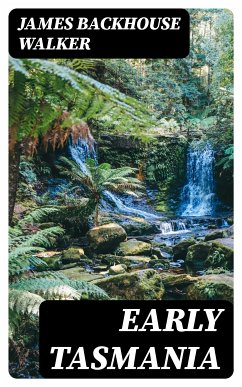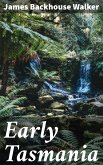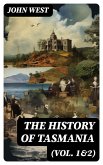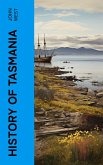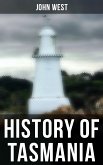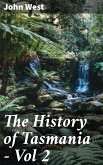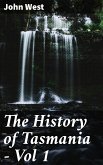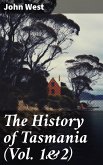In "Early Tasmania," James Backhouse Walker offers a profound exploration of the island's formative years, deftly intertwining history, geography, and sociology to illuminate the complexities of early colonial life. Written in an eloquent yet accessible style, Walker's narrative combines meticulous research with vivid descriptive passages, placing the environmental and human elements of Tasmania within the broader context of colonial expansion in Australia. The text serves not only as a historical account but also engages with the moral implications of colonization, reflecting a rapidly evolving literary trend that sought to reconcile the brutalities of empire with emerging national identities. James Backhouse Walker, a prominent figure in Tasmanian history, was deeply influenced by his background as the son of a Quaker. His upbringing instilled in him a sense of social justice and a profound interest in nature. Walker's firsthand experiences as a botanist and historian uniquely positioned him to comment on the delicate balance between the exploitation of resources and preservation of the indigenous landscape, enriching his narrative with both scientific rigor and ethical contemplation. Readers seeking a comprehensive understanding of Tasmania's history will find "Early Tasmania" to be an invaluable resource. Walker's insightful observations and balanced perspective make this work essential for anyone interested in the nuances of colonial history, ecological concerns, and the ingrained legacies that shape modern Tasmania.
Dieser Download kann aus rechtlichen Gründen nur mit Rechnungsadresse in A, B, BG, CY, CZ, D, DK, EW, E, FIN, F, GR, H, IRL, I, LT, L, LR, M, NL, PL, P, R, S, SLO, SK ausgeliefert werden.

